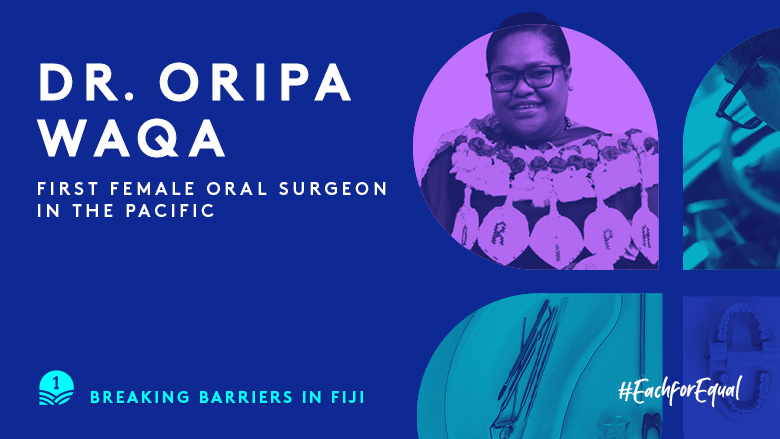What inspired you to become a dentist?
I was born on the island of Kadavu in Fiji and my mother was a dental therapist. When I was growing up, I was always around the dental clinic, and I think that was one of the major draws for me. Plus I’ve always wanted to help people and I saw it as a good avenue to do that.
Are there barriers for Pacific women to enter dentistry?
During my mother’s time, there were a few women in dentistry, but mostly [dental] therapists. There weren’t many women who were fully-qualified dentists.
But, I didn’t face any barriers entering dentistry in Fiji. Though I did when I decided to enter the specialty of oral surgery because it's a male-dominated field. But that pushed me into doing it, because I knew there were only male oral surgeons in the Pacific. I wanted to do something that would inspire women to enter the field. As women, we are built to be more empathetic. It has helped make me be a better clinician.
You studied your doctorate in New Zealand. What did you miss most from home?
I spent three years getting a Doctor of Clinical Dentistry from the University of Otago in Dunedin. The weather was one of the main shocks. From the tropical climate that we have in Fiji to experiencing temperatures below zero, it was a shock for me. I missed the sun and my family and friends.
Now that you’re qualified, what do you hope to achieve?
I want to bring health to people at the grassroots level instead of just treating people at major hospitals. Often the surgical cases I see are in the late stages, and these are usually people coming from rural areas. My aspiration is to get mobile clinics out into rural and remote areas so people don’t have to try and make it to cities to get help.
Do you think more needs to be done to increase equality between men and women in the Pacific?
Yes, definitely. In the Pacific men are seen as leaders, and women have to work extra hard in order for our voices to be heard. But now I see more women in politics and I'm quite proud of them having a voice and being able to show all of us that we are a force to be reckoned with. Women are just the same as men and can bring a lot to the table.
Do you have any advice for Pacific women?
Have the spirit to always aim high, work hard and dare to make a difference. Be the voice of what you are passionate about. We have the ability to passionately influence those around us in a responsible way, and we can empower others with optimism – never let anyone tell you that you can't.
Follow World Bank Pacific on Facebook to make sure you don’t miss any of our Pacific Women Breaking Barriers series.
**The views expressed in this article do not necessarily represent the views of the World Bank Group and its employees.


